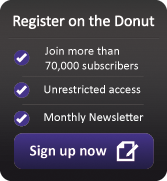Small business CRM software
 Customer relationship management (CRM) software can help your business communicate with and market to customers more effectively.
Customer relationship management (CRM) software can help your business communicate with and market to customers more effectively.
CRM software for small businesses can give you access to key information, helping you target customers with offers or analyse customer data to help your marketing strategy.
How does small business CRM software work?
Central to every small business CRM system is a customer database. This stores information about your customers – their names, addresses, what they've bought, when you've contacted them and so on – so whoever answers the phone has access to all the relevant details.
CRM software enables you to segment and analyse this data. For instance, your best customers – those who spend most, order frequently or have been with you longest – might deserve special treatment.
Small business CRM software will also include a contact manager, allowing you to log every customer contact. This means customers don't need to repeat information when they call.
Is CRM software right for your business?
CRM software is most beneficial to small businesses with a wide product range and customer base which they contact frequently.
Depending on the package you choose, implementing a CRM system can be a big project, so there are some circumstances where full-blown CRM software is overkill:
- If you make simple, one-off sales, tracking customer contacts might be unimportant. For instance, a used car dealership might only sell to the same customer every five years.
- If you have few customers, you may be able to track them using a spreadsheet, database or on paper. For instance, a graphic designer with 10 clients can keep tabs on them manually.
If you run a small company, good CRM software will boost customer satisfaction by ensuring you contact customers at the right time, with the right information.
What types of small business CRM software are there?
There are three main types of CRM software:
- Standalone CRM softwareruns on a single computer. These packages are good for businesses where one person handles customers. Standalone software can cost as little as £20 for a single user up to around £200 depending on the functionality you require.
- Server-based customer relationship software runs from a central server. It allows several people to access the system and is good where several employees are customer-facing. To set one up may require new hardware plus the software – budget at least £1,000 for a ten-person company.
- Cloud CRM software like Really Simple Systems and Salesforce are subscription services. You pay a monthly fee to access your CRM system across the internet. It's a form of cloud computing and a good way to get the benefits of CRM software with lower management costs.
It's important to determine what you want from your CRM system at the outset. Your IT supplier will be able to help you identify the right software for your needs.
Make sure you think about how you might want to expand your small business CRM software in future. You may also be able to connect your CRM system to other business systems (such as your telephone or email system), to log call or contact details automatically.





